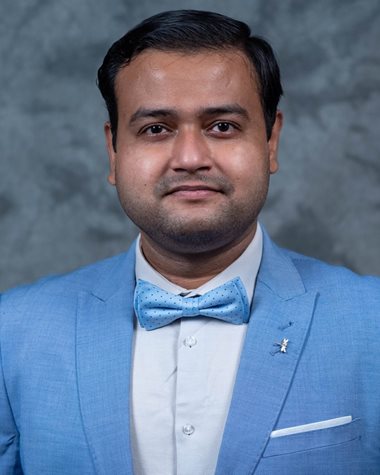September 2023
Blog 21: PhD Checkpoint, and an Eventful Summer for an Aggie PhD Student
By Gogoal Falia
In the academic journey of every doctoral student, the qualifying (comprehensive) exam is the major checkpoint that allows them to reflect on their progress, their capabilities, and their ability to move along toward proposal and dissertation defense. To my dear readers who have been avid readers must have noticed the lack of blog entries from your humble blogger, I must acknowledge the qualifying exam was the sole reason for this absence. If you are not in a doctoral program or have just recently begun one, you most likely aren’t aware of the logistics and stress that come with the preparation. I must say, I was not. However, the whole process this past spring and summer was an arduous one. While I passed my exam and have moved on to the next step of my journey, the number of sleepless nights, hard work, and dedication that it required have given me a new outlook on how rigorous a Ph.D. program is and the overall experience that comes while undertaking one. Let this return-to-blog entry be my few cents on the process, the challenges, and advice to you as you prepare yourself to take the exam in the coming months and years.
Comprehensive/qualifying exams vary significantly based on the department and schools you are from. However, some things are common. First, you have a written and an oral/viva component. Not only do you have to show a written mastery of the subject area you are in, but also defend it at the oral exam a few days (or weeks) later. Second, it can either be open-book or closed-book. Third, as the name suggests it is an exam taken alone and requires you to bring together the competencies, skills, and knowledge from the first year (or two) of your program and address the questions asked of you (some departments seek a draft paper for their qualifying/comprehensive exam). Finally, you have a whole day to work with, but let me tell you this is not enough. Leaving the preparation for the last few weeks is a dangerous gamble which I will not condone.
Every exam has its challenges. The comprehensives are the same. Perhaps the only difference is the fact that you get only one do-over before you are asked to quit the program and give up on your dream. Failing your comprehensive on the first attempt is not unheard of, some departments have higher rates of such failure compared to others. However, failing a re-take is rare but could also mean the end of your journey. These thoughts lingering at the back of your mind add to the level of stress. Further, chances are you and your cohort will take this exam at the same time, and the solo preparation and exam taking can be a difficult barrier to surpass for some. As an eternal optimist, and perhaps a naïve exam taker, I never had any such thought cross my mind. Hard work and dedication are the solution to every problem after all. However, my experience with the exam not only taught me the value of smart planning but also professional engagement and relationship building. If you are reading this blog, dear reader, the next paragraph is what you might want to focus on.
Plan well in advance. The first and foremost advice I would give you here is you must anticipate the difficulty early, engage with the literature, and develop the skills you will need to apply those for your exam, and for your doctoral program overall. Secondly, do not attempt solo work, solo preparation, or solo non-academic leisure time. One of the biggest advantages I had which helped me pass my comprehensive exam was group work. My cohort and I engaged in group study, undertook joint document development, and held each other accountable for our contribution to the preparatory work. Third, engage with your faculty members not days or weeks before your exam, but from the very first day in your program. It is extremely important to show initiative. Research can never be siloed, and you can never learn everything by yourself. The very existence of peer reviews supports this statement of mine. You need to develop your knowledge base and the best place to do so is by talking to your faculty members, who are experts in their field. Lastly, spend time with your colleagues outside the campus boundaries, and talk to your loved ones, family, partners, children, etc. those who matter to you the most. Never make the doctoral program your only priority. It is part of your journey, not a destination. And there is a real possibility that when you take on this journey, the ones you love might be left behind.

Pic: Stress-Relief. (Image courtesy: Gogoal Falia)
As I conclude this blog, I must acknowledge that I was blessed with people who cared for me and supported me through this experience- my friends, loved ones, family, and colleagues. I could not have done it without them, and I hope you too have this support system with you while taking this exam. I believe in you!
